
But go back to the word's origins, "propagare - to propagate", and you discover its true intent was more benign (or at least neutral) than malicious. It related to the gardener's practice of propagating plants by cutting shoots and planting them. Spreading propaganda meant spreading information in the hopes of persuading a group of people to see things your way.

Richard Alan Nelson defines propaganda in this manner: "Propaganda is neutrally defined as a systematic form of purposeful persuasion that attempts to influence the emotions, attitudes, opinions, and actions of specified target audiences for ideological, political or commercial purposes through the controlled transmission of one-sided messages (which may or may not be factual) via mass and direct media channels. A propaganda organization employs propagandists who engage in propagandism—the applied creation and distribution of such forms of persuasion."
Its political (and mostly negative) connotations really only emerged during World War 1 (and were further refined during WWII).
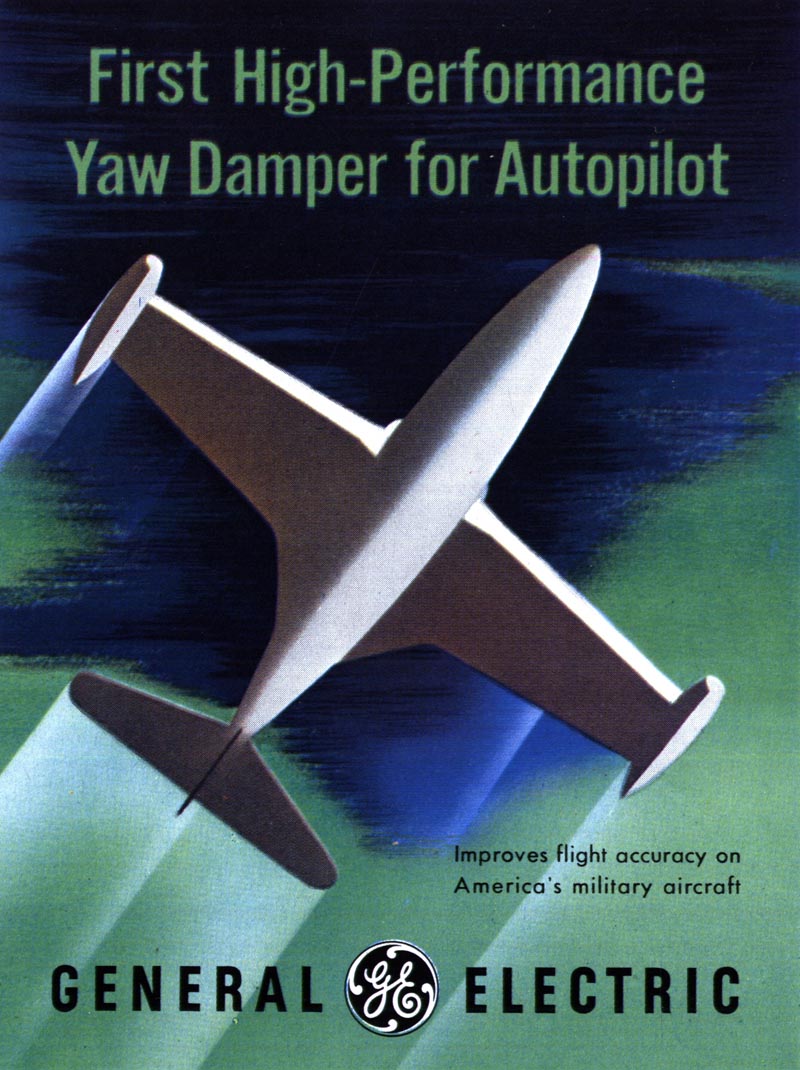
Propagandists on all sides used 'purposeful persuasion' to target their audiences by focusing on some very specific themes: fear,
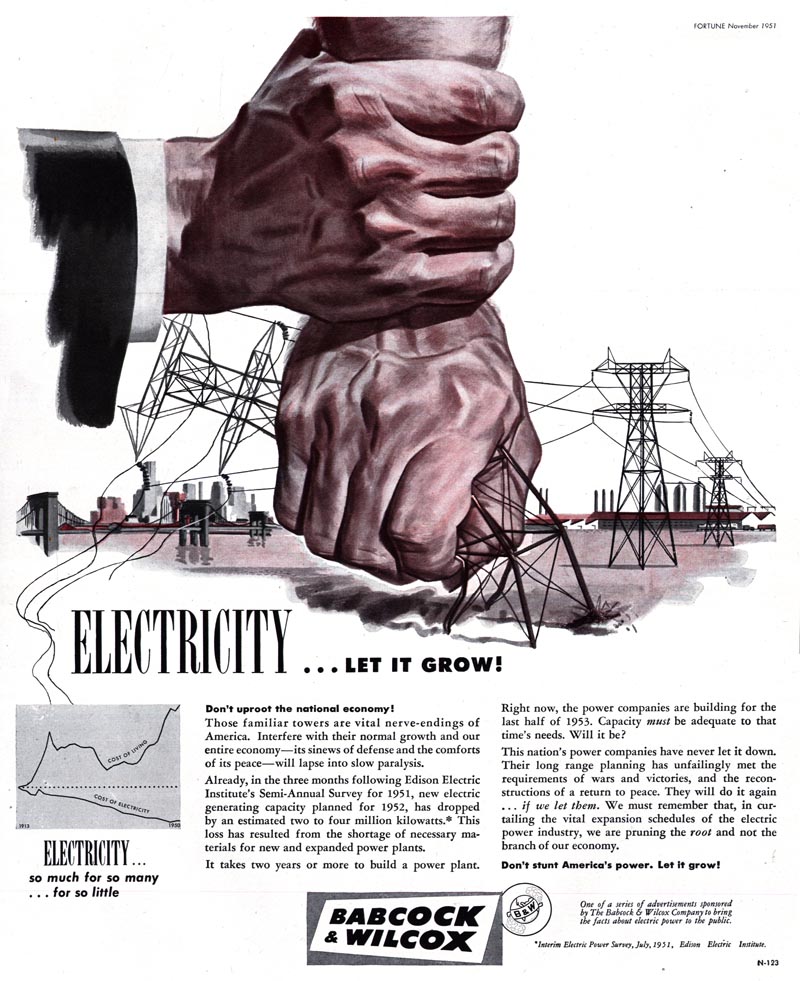
... patriotism,
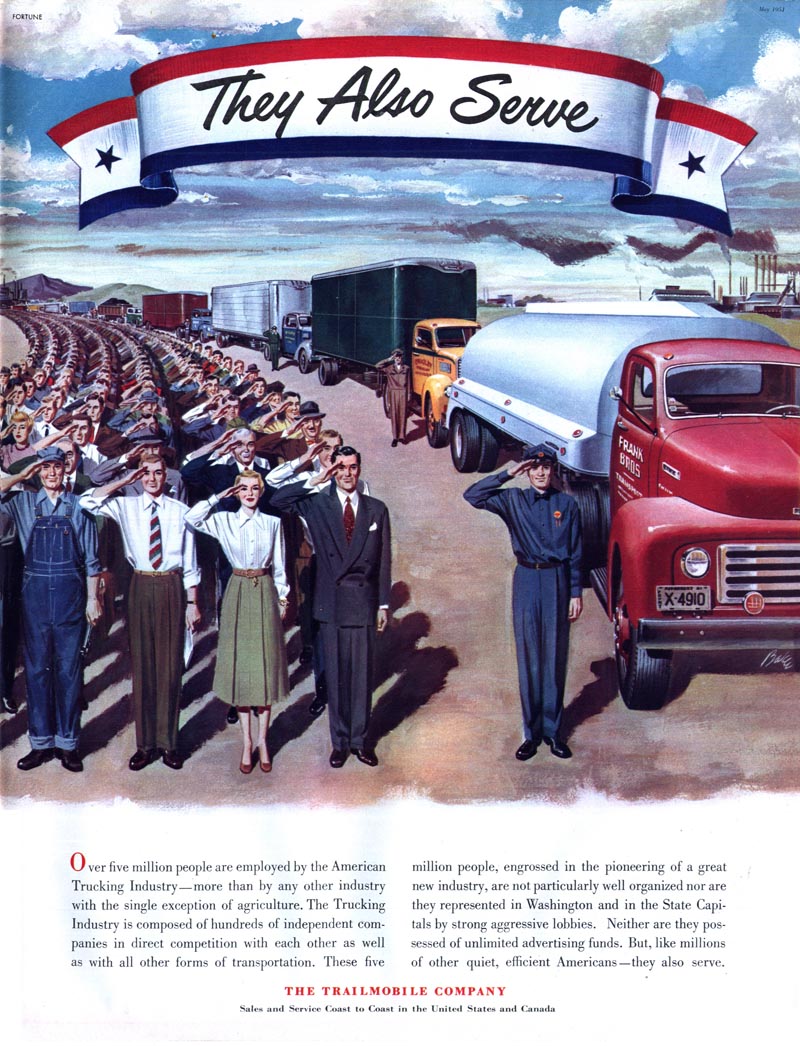
... single-minded focus on a very specific goal,
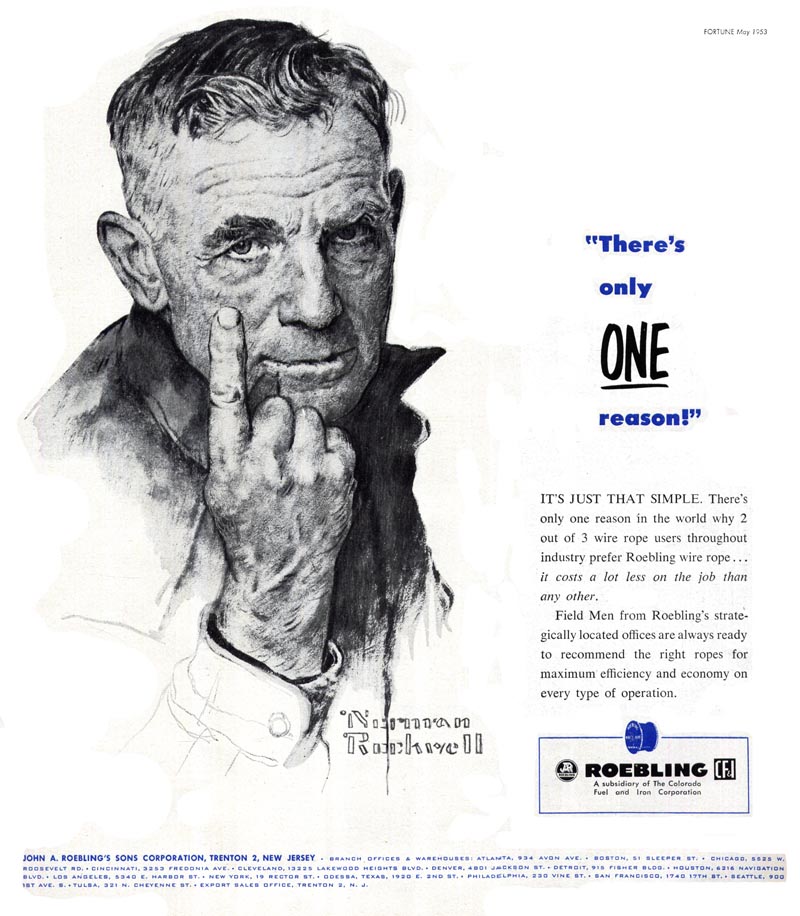
... and a sense that power (and empowerment) is achieved through a united front.
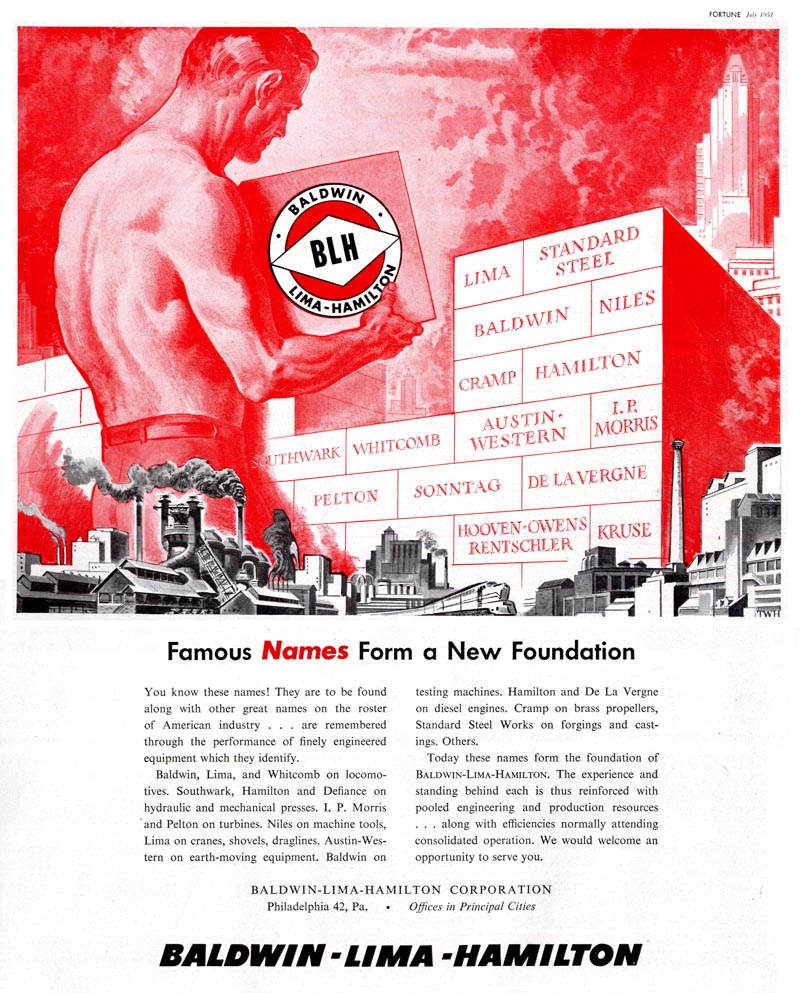
Those same themes continued to be extremely popular with industrial advertisers of the 1950s hoping to 'purposefully persuade' their target audiences.
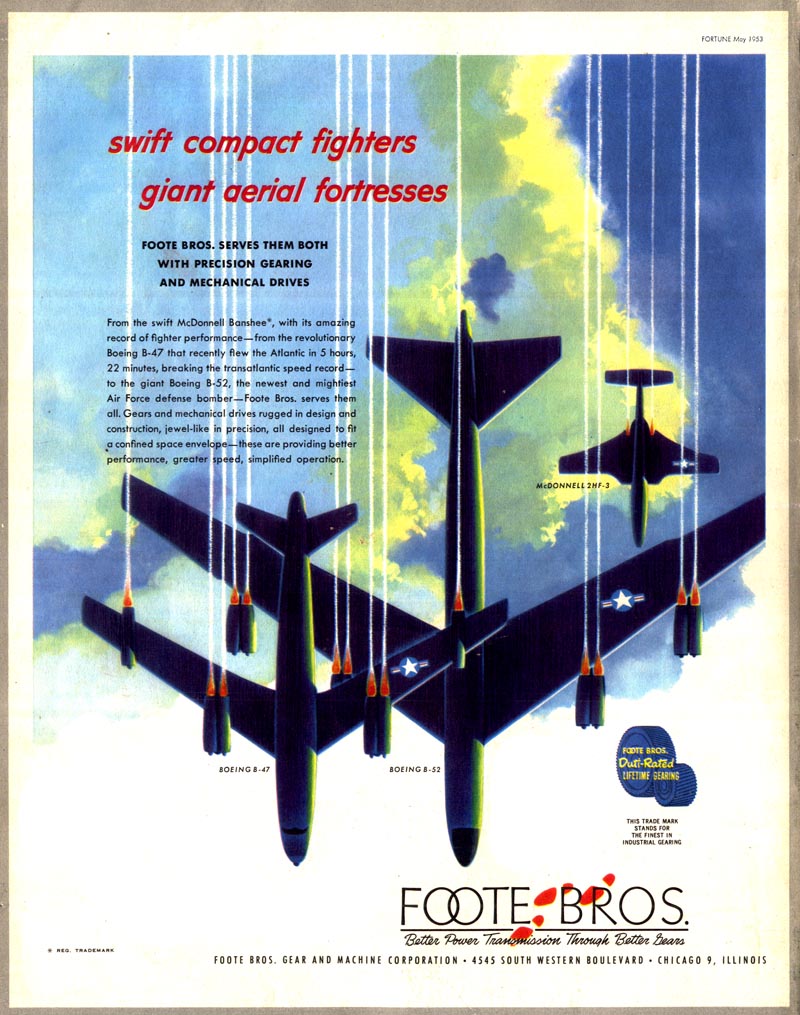
Above are some examples from early '50s issues of Fortune magazine. Advertising... propaganda... or both?
* All of these (and many others) are in my Industry Flickr set






0 comments:
Post a Comment